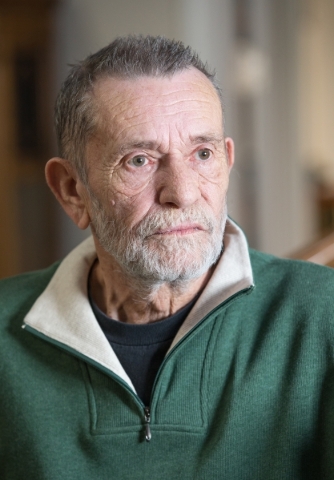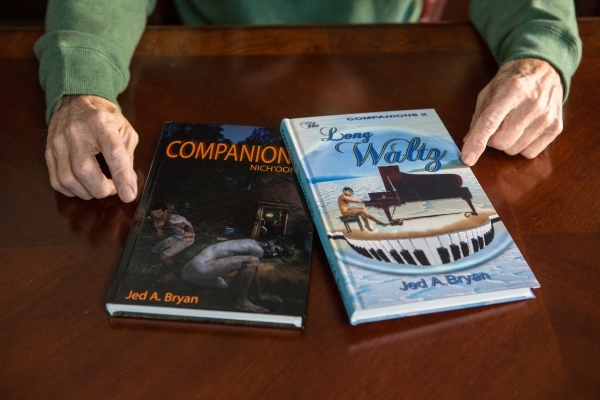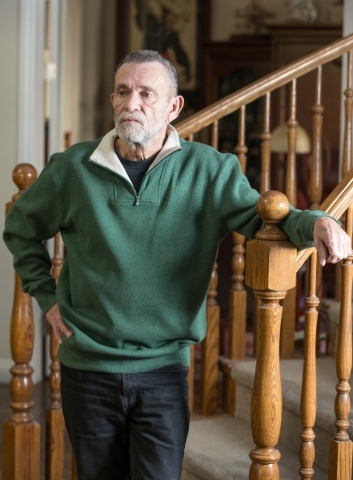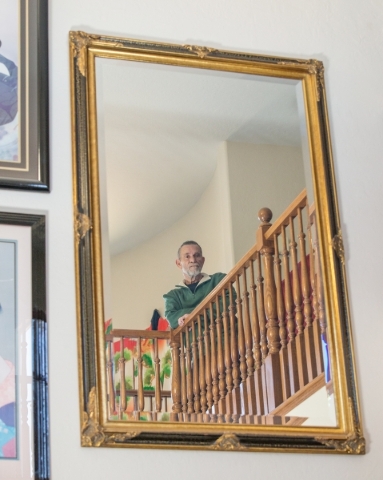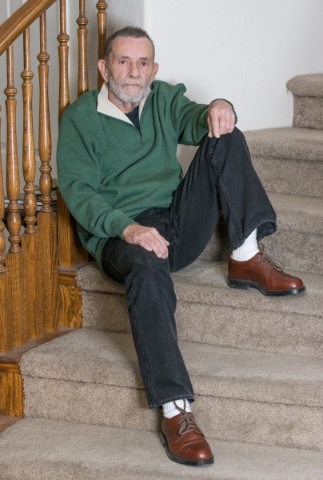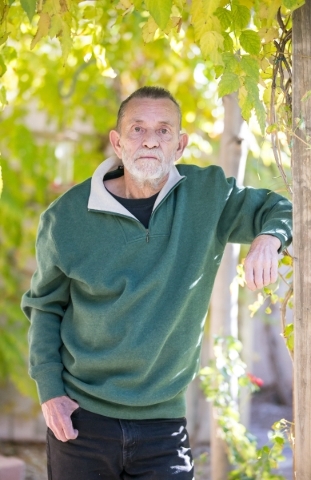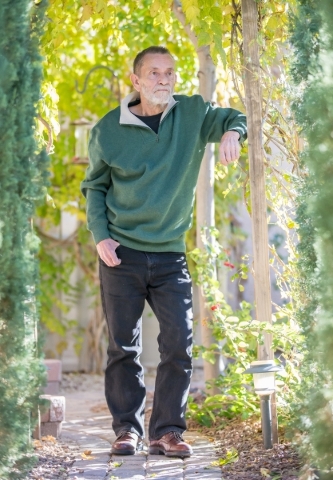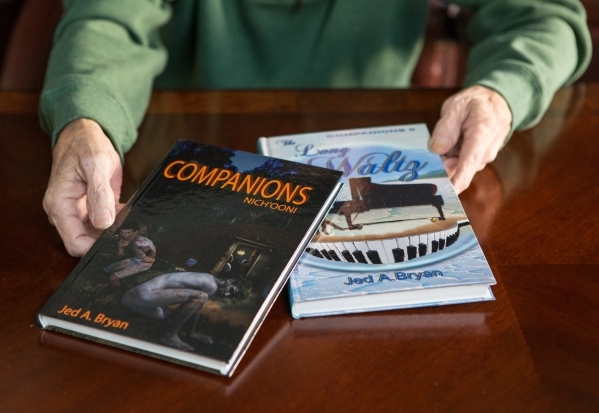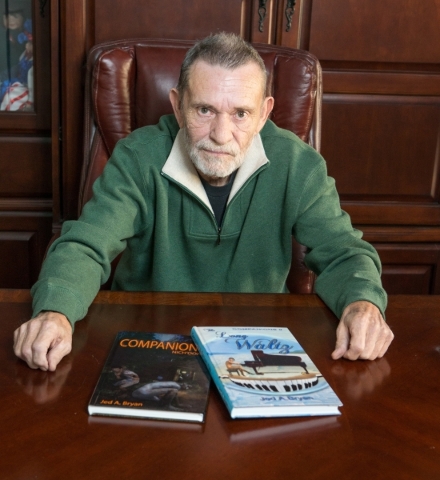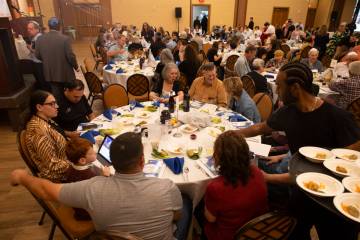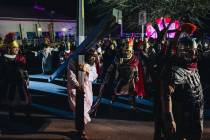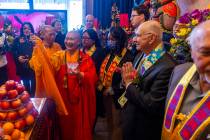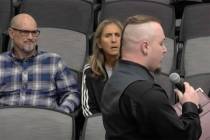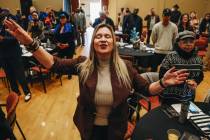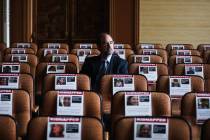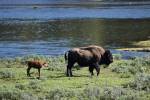Gay author shares experiences, anger about Mormon church
Onstage and in literature, gay Mormons are experiencing a growing presence in pop culture.
Plays about gay Mormons have been big hits both off-Broadway and on, from Tony Kushner's Pulitzer Prize-winning "Angels in America" to Steven Fales' one-man play "Confessions of a Mormon Boy" to the Tony Award-winning musical "The Book of Mormon."
Mormonism's influence on contemporary gay literature can be seen in "Latter-Gay Saints: An Anthology of Gay Mormon Fiction" (Lethe Press, 2013), edited by Gerald S. Argetsinger. It received the 2014 Fawn Brody Award for best LDS-themed anthology and features both well-known gay writers, such as Bernard Cooper, and Mormon writers, such as Carol Lynn Pearson.
But this influence is not entirely new. There were gay pulp novels in the 1960s, and the late Richard Fullmer, writing as Dirk Vanden, won a belated Lambda Literary Award for his '60s cult classic trilogy "All Together," which were some of the first gay novels that allowed the gay protagonist a happy ending. Vanden, who was described in the leading Lambda Literary Review as "the father of gay literature" was raised Mormon and acknowledged that Mormon themes influenced his work.
Local author Jed A. Bryan is another gay Mormon writer who re-emerged in 2012 after more than two decades of silence with the novel "Companions (Nich'ooni)" (re-released in 2014). He followed it with a sequel, "The Long Waltz," last year.
Bryan previously authored two gay classics from the late '80s: a satire about a transgendered beauty queen, "Sacred Cows," and the AIDS science-fiction thriller "A Cry in the Desert."
Respected gay editor, the late Stan Leventhal, lauded "A Cry in the Desert" when it was first published in 1987 as, "The best novel to date about AIDS and the gay community."
Bryan's novel "Companions," or in the Navajo language, "Nich'ooni," tells the often humorous story of closeted gay Mormon missionary Johnny McKay and his love-hate relationship with his missionary companion, American Indian Jeff Rama, as the two proselytize in the Navajo Nation of northern Arizona.
The sequel "The Long Waltz" follows Johnny and Jeff after they have been outed, as they continue their journey as life companions.
Bryan appeared at local LGBT bookstore Get Booked soon after "Companions" was published and store co-owner and manager Raul Gutierrez Mangubat said that the event was one of the independent bookstore's "most successful" author signings.
The novel is a "compelling story of love," Mangubat said, noting that Bryan's "knowledge of Navajo culture and language is truly impressive."
"Mormonism and its views on homosexuality" is an important subject for both the gay community and The Church of Jesus Christ of Latter-day Saints, Mangubat said. He added he can "easily understand why there would be a great interest," because of the valley's large LDS population.
Bryan, a former teacher, was born in 1947 and grew up in the Tooele Valley southwest of Salt Lake City. "I had the unreachable desire to be perfect," he said, and by his high school senior year was a model Mormon young man.
But as a student at BYU, Bryan was plagued by questions about his sexuality. He said he believed that if he reached high enough within the church hierarchy, he would find answers. "I simply walked into the church offices and asked to see an Apostle," he recalled. "I didn't realize I was walking into the lion's mouth."
Bryan said he was promised by the church leader that if he became a faithful missionary, "I would come home a changed man, a perfectly heterosexual one."
There followed his two years as a missionary in the Navajo Nation, which he described as a "dumping ground." When he arrived, Bryan said, "I had a fine business suit, leather attache case and even a dignified business hat." The mission president "told me that I had come to the wrong mission, that is, if I was going to wear that hat."
"Companions" is a fictionalized account of Bryan's colorful mission experience. "The book was so natural to write," he said, "that it flowed out like water." Though autobiographical, Bryan said he chose to write a novel because "fiction allows you to control the story."
Although Bryan had followed the Apostle's advice faithfully, the mission experience had not changed him, as promised. "I had done all I could, it made no difference. I married, had two kids, tried until I was completely suicidal," he said, noting he made four attempts to kill himself.
After a long separation and a divorce, Bryan met his partner, Doug, in 1974 in a gay bar in Salt Lake City. Doug was a newly returned missionary. "We are like a pair of old shoes, not much good together, but totally useless apart," Bryan said.
"The church is guilty of a host of sins, crimes really, that deliberately destroy the lives and futures of people," both gay and straight, he said.
"Lives may not be eternal," Bryan added, "but, as they are, they should be considered valuable."
Just before the Church's recent announcement that children of same-sex couples would be refused baptism (after turning 18 they can be baptized if they disavow gay relationships and marriage), Bryan, now a grandfather, said, "I believe that families should not be based on or destroyed by doctrine."
"If I can get one parent to continue loving his or her child," he said, "then I have succeeded."
"This is my fight," Bryan added. "That is my strongest belief."




